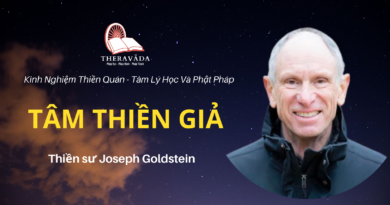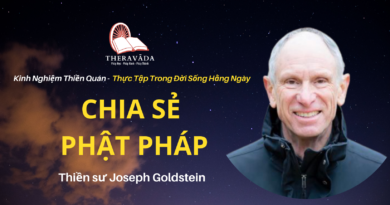Answers By Mr. S. N. Goenka: Ego
-I heard a famous person speak recently, someone who was obviously very insightful, very wise, very intelligent, very brilliant—but also, to my perception, very egoistic, in a way that seemed potentially dangerous to that person and to others. How do you recommend responding to a person like that?
Mr. S. N. Goenka: You see, if you simply say to that person, “Look, you are a very wise person, but to me it seems that you are also an egoistic person,” that won’t help. This person will become more egoistic: “What do you know? You are a mad fellow. You don’t know that I am free from ego.” That’s what this person will say.
The best thing is to try to purify oneself first. With a pure mind, whatever you say will be very effective. When the words come from a pious-minded person, even this full-of-ego person will start thinking, “Yes, perhaps this is correct. Now let me examine this. There must be something wrong in me.”
But when you say, with any kind of anger or hatred, “Oh, this fellow talks as if he is a very wise person, but he’s really a mad fellow”—when even the volition carries some hatred—the words will carry no meaning. No purpose will be served, because the vibration of anger or hatred will go with them. When you have hatred, that vibration of hatred will go and touch this person and he will become agitated; he won’t like it. But if a vibration of love goes with the same words, you will find a big change happening.
Everyone who wants to help others to come out of misery, or come out of their defects, must first come out of that particular defect oneself. A lame person cannot support another lame person. A blind person cannot show the path to another blind person. Vipassana helps you first become a healthy person yourself, and then automatically you will start helping others to become healthy.
-Should we try to avoid our ego and try to push it down or should we just let it be?
Mr. S. N. Goenka: Never push it down. You cannot push out or suppress the ego. It keeps on multiplying by that. It will naturally get dissolved if you practise. Let it happen naturally and this technique will help. Dhamma will help.
-I find that I am every egoistic and quick to belittle other people. What is the best way to come out of this problem?
Mr. S. N. Goenka: Come out of it by meditating. If the ego is strong, one will try to belittle others, to lower their importance and increase one’s own. But meditation naturally dissolves the ego. When it dissolves, you can no longer do anything to hurt another. Meditate and the problem will automatically solved.
-Why do I keep reinforcing this ego? Why do I keep trying to be “I”?
Mr. S. N. Goenka: This is what the mind is conditioned to do, out of ignorance. But Vipassana can liberate you from this harmful conditioning. In place of always thinking of the self, you can learn to think of others.
-You speak of the ego ‘I’ only in negative terms. Hasn’t it a positive side? Isn’t there an experience of ‘I’ which fills a person with joy, with peace and rapture?
Mr. S. N. Goenka: Through practice of Vipassana, you will find that all such sensual pleasures are impermanent; they come and pass away. If this ‘I’ really enjoys them, if they are ‘my’ pleasures, then ‘I’ must have some mastery over them. But they just arise and pass away without my control. What ‘I’ is there?
Q: I’m speaking not of sensual pleasures, but of a very deep level.
Mr. S. N. Goenka:At that level, ‘I’ is of no importance at all. When you reach that level, the ego is dissolved.
There is only joy. The question of ‘I’ does not arise then.
Well, instead of ‘I’, let us say the experience of a person.
Feelings feel; there is no one to feel it. Things are just happening, that’s all. Now it seems to you that there must be an ‘I’ who feels, but after beginning to practice Vipassana, you will reach the stage where the ego dissolves. Then your question will disappear!
For conventional purposes, yes, we cannot run away from using words like ‘I’ or ‘mine’ etc. But clinging to them, taking them as real in an ultimate sense will only bring suffering.
Source: https://www.vridhamma.org






